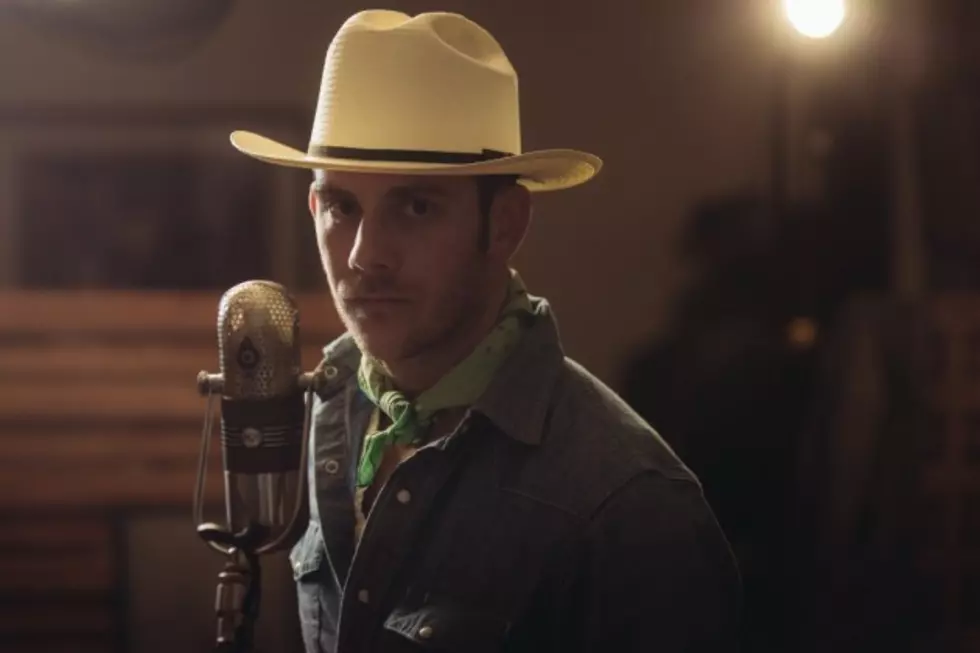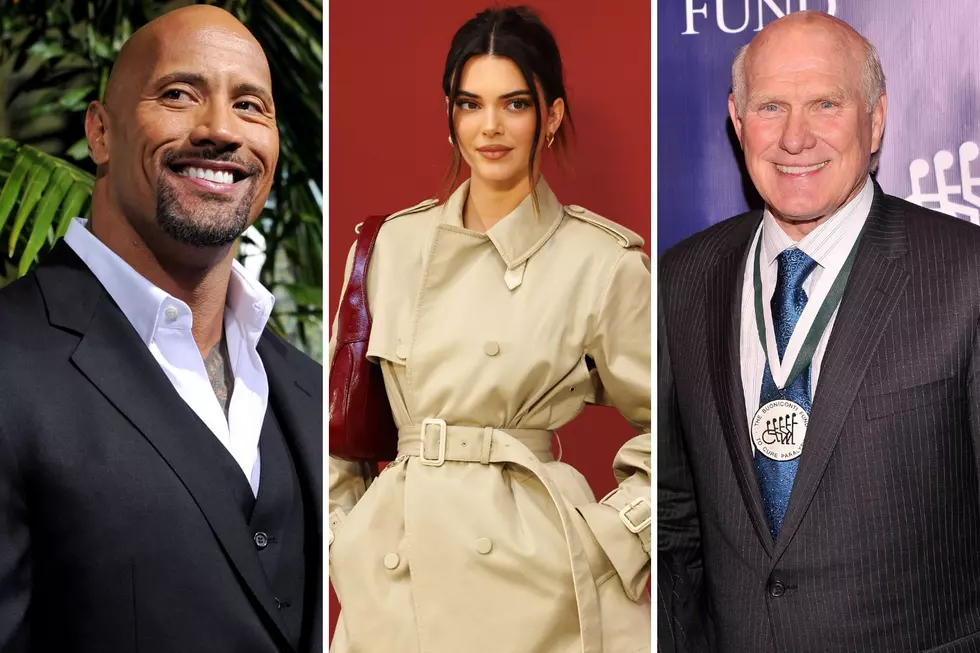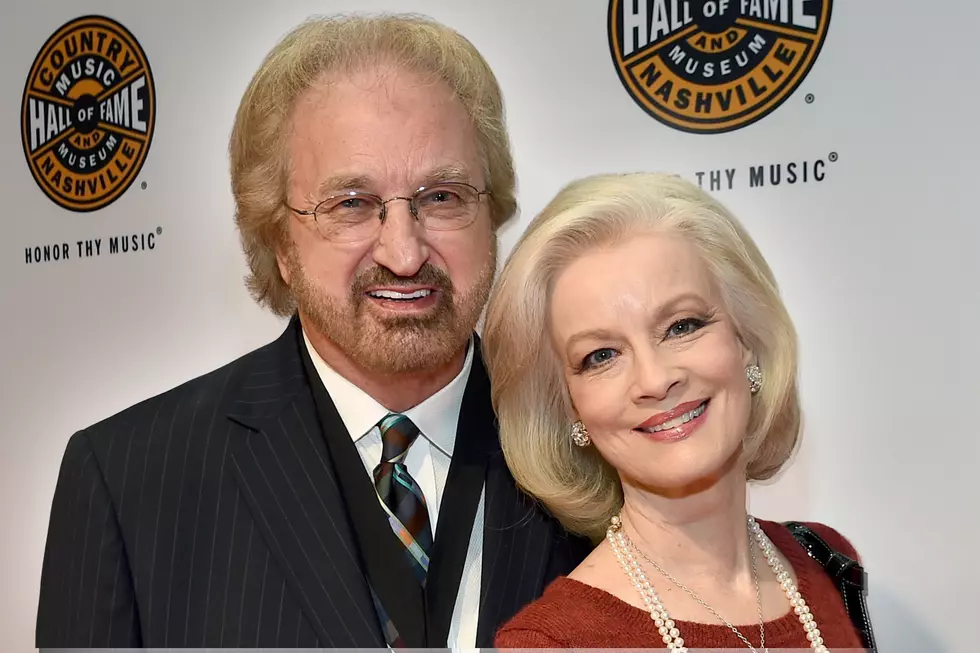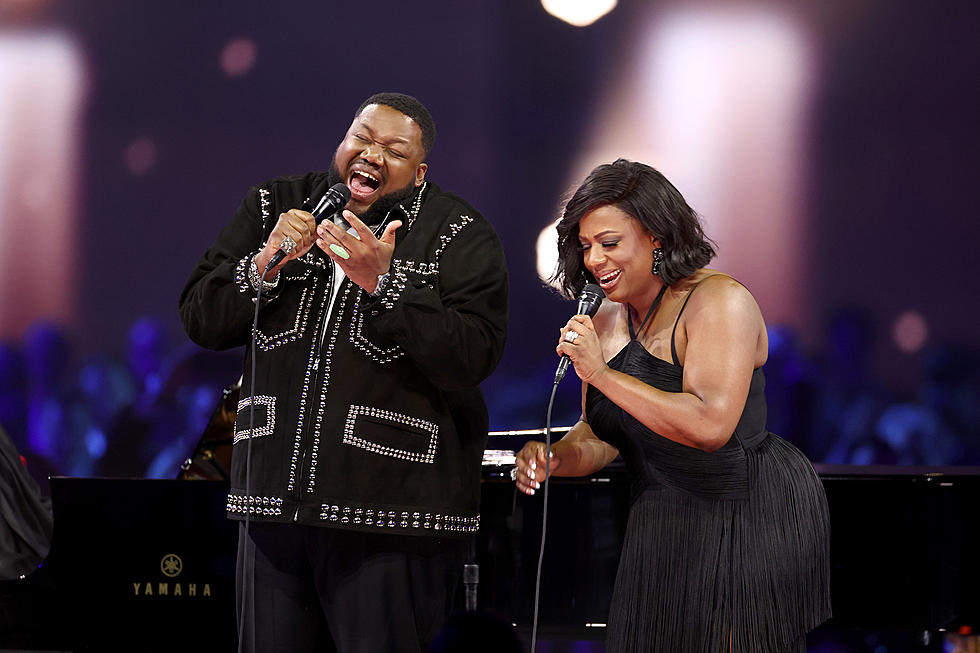
Sam Outlaw Talks About His Debut Album, ‘Angeleno’
Sam Outlaw may be one of the most interesting performers releasing an album this year.
The singer-songwriter is a study in contradictions; his stage name could sound contrived, but is actually a very moving testament to his late mother. He threw away a very successful career in advertising to chase his dream of performing country music, and now he's a cowboy hat-wearing country singer based in Los Angeles.
He's releasing his debut album, Angeleno, on June 9 through a new partnership between Six Shooter Records and Thirty Tigers, which will be Canada-based Six Shooter's first foray into the U.S. marketplace. The album is steeped in the influences of Southern California, both past and present, and boasts an impressive cast of musicians that includes Bo Koster (My Morning Jacket), Taylor Goldsmith (Dawes), Gabe Witcher (Punch Brothers) and vocalist Arnold McCuller. The album was co-produced by Grammy winner Ry Cooder, who contributes electric and acoustic guitars, bajo sexto and banjo, and his son, Joachim Cooder, who also plays drums.
Despite being new to the process, Outlaw turned out to be a very thoughtful, insightful interview subject when Taste of Country caught up with him recently to talk about the new project. He shares his thoughts about not only the album, but a wide range of other subjects.
Is Outlaw your actual last name?
[Laughs] That's everyone's first question. Outlaw is actually my mother's maiden name. My father's last name that I was born with is Morgan, which I think is a fine last name, but when I first started playing out in 2009, I thought, 'You know, I love this Outlaw name, and it means a lot to me.' And fortunately it's also catchy in kind of a country way. So I started using the name, and it started at kind of the superficial level, but after my mom passed away a couple of years ago, it took on kind of a deeper meaning for me. Using the name is kind of a way to honor her, to pay tribute to a person who encouraged me very much to pursue music. She really encouraged me in the more creative side of my life.
You were in ad sales prior to this, is that correct?
Yeah, I sold advertising for almost 10 years, and it's kind of like a double-edged sword. It pays enough and gives you enough flexibility that you can kinda do music as a hobby, so it kind of encouraged me to keep on playing. It's so hard to do music for a living, and even my friends who do it successfully are all poor. And then a couple of years ago I threw myself a 30th birthday party, a showoff party with an open bar, at a hip place in Silver Lake, and I'm driving a nice car and I've got a hot girlfriend and all these cool friends. I remember I woke up the next day from my birthday party and thought, 'S--t, I don't really care about this stuff.'
While having money is absolutely great, I don't know that it's sustainable for me to keep doing this with my life if there's something that, for lack of a less melodramatic term, something that I'm supposed to be doing. I think that was when I started to make the decision that I needed to embrace music more, and stop being afraid of myself and what I'm supposed to be doing.
That must have required some major lifestyle changes on your part.
I'll put it this way: I finally quit my full-time job just before SXSW, so it was only about a month ago that I actually quit. And I can tell you that my wife and I are moving out of our house, she's gonna take a job working on a ranch in Wyoming for the summer, and I'm gonna be on tour, and kind of making a home base out of my brother's home in Southern California. So it's a huge lifestyle change, but if you go into it understanding the reality of what you're doing — if you're not making radio country music, then the chances that you'll be owning a boat in five years are not great. But also understanding that there's a deeper joy found in waking up every day and actually giving a s--t if I actually accomplish the thing that I want to accomplish. I'm feeling joy return to me, and I'm lucky to get to do something I really love.
I might be some dork in a cowboy hat, but if I move to Nashville, I'll be just another dork in a cowboy hat.
Why base out of Los Angeles instead of Nashville?
I basically first played in Nashville a year ago, at Music City Roots. Before that my girlfriend — now wife — and I went to check it out, and definitely in many ways fell in love with Nashville. But afterward my feeling was, doing this out of L.A., I might be some dork in a cowboy hat, but if I move to Nashville, I'll be just another dork in a cowboy hat. I find a lot of inspiration being in Southern California.
How did you get hooked up with Ry Cooder to do this record?
I'd met his son, Joachim, on tour in 2013, and last summer I had this record in mind. I knew what I wanted, but I didn't have a producer. I started reaching out to different musicians, just trying to put together a band, and I figured even if I can't find the right producer, if I get the right players I'll be most of the way there, and maybe produce it myself. So I reached out to Joachim, because he's a phenomenal drummer.
I called him up and asked him if he would drum for me, and he said yes, so we got together with my band at my house and we started playing through the news songs, just workshopping the tunes in my living room. And I just kept my iPhone up on the fireplace mantel and hit record, just so we would have some record of the songs.
A couple of days later he calls me up and he says, 'Hey man, would you mind sending me those demos?' And I said, 'Well, they're not even demos, they're just these s--tty recordings I did in my living room.' And he said, 'Well, are you still looking for a producer?' And I said yes, and I knew Joachim is a producer, so I thought maybe he was going to offer to produce. And he said, 'I'm gonna send them to Ry.' And I said, 'Well, why?' [Laughs]. 'What use does Ry Cooder have for these pop-country songs?'
So I sent them over, and sure enough, a few days later he calls me up and says, 'Hey man, Ry wants to get together.' So I went out to breakfast with Ry Cooder and Joachim Cooder, and I guess the rest is history. It was a really special thing. By the time I got back to my computer that day, he'd already emailed me six times, and one of them said, 'Hey, I see you've got this show coming up, would it be okay if I sat in with the band? I'd really like to get more familiar with the tunes before we go into the studio.' [Laughs].
So for someone like me, who was at square zero and going to produce this record myself, it's a great honor to have Ry producing. Not only did he produce this record, he's playing on every track. Most of the record was cut during those first three days of tracking, with my steel player, my bass player, Joachim on drums, my buddy Bo from My Morning Jacket on Wurltizer, and then Ry on guitar. And on top of that, he went in and overdubbed a lot of other stringed instruments. It's crazy — not only did I get to make my record with Ry producing, I also got to basically watch a Ry Cooder record being made. It's something that I feel like I'll forever be able to tell my kids about one day.
My PR agent hates when I say this, but when we were making the record, in many ways I was the weakest link in the band. [Laughs]. I was surrounded by these great players, and I was lucky that they liked my songs, and that they felt like there was something there. It was a very cool moment in life.
Let's talk about some specific tracks and the inspiration behind them. The first one is "Who Do You Think You Are?"
That was a song that literally, I was working a full time job while doing this, so most of these songs were written in my head while walking to meetings, or sitting at a desk, or driving in my car. I remember writing "Who Do You Think You Are" in my head while walking on Sunset Boulevard in Hollywood, before being able to get home that night and actually record a little demo of it. So I must have been daydreaming. I was probably just trying to find a way out of my mundane life. [Laughs]. So my escape was writing this song in my head and fantasizing about Baja, Calif.
It's a simple pop song that was taken to the next level with the mariachis, and it helps set the tone for the record. I wanted to capture to capture that Southern California flavor.
"Ghost Town" was inspired by your mom's passing?
That's right. Before my mom passed away, her and my dad split up, and I remember kinda starting the idea for the song ... when they split up, I went home for the first time after my mom left town. It was Thanksgiving, and it was creepy feeling. My dad still lived in the same house, and it was kind of not taken care of, and not to throw anybody under the bus, because everybody was doing as good as they could, but it was a very sad experience. I finished the song after my mom passed, and I realized in many ways it's not just about the death of my mother, but the dissolution of family and that strange feeling of going home for the first time after somebody passes away, and you can see your childhood home and see all of the things like the couch from sixth grade, and the dresser you've had since you were 10 years old. All these things are in their right place, but absolutely nothing feels the same anymore.
Another track is called "Jesus Take the Wheel (And Drive Me to a Bar)." Is that supposed to be a spoof of the Carrie Underwood song?
No, and people don't believe this, but this is true: I still have never heard the Carrie Underwood song. But after I wrote that song, someone said something about it, and I was like, 'What are you talking about?' And they said, 'Well, you're obviously writing this as a goof on Carrie Underwood.' I was like, 'What are you talking about?' They were like, 'What are you talking about? Dude, she has a famous, huge song called 'Jesus Take the Wheel.''
I was just referring to the Christian sentiment I hear all the time of 'Jesus take the wheel,' which I've always thought was just f---in' dumb, like 'God is my co-pilot' and that kind of s--t. It's in no way a response to Carrie Underwood. I have no doubt that the Carrie Underwood song is fantastic, and look, I myself am a Christian. There's nothing against Christianity. I'm just one of those Christians who happens to smoke and drink and swear, and so these are sentiments that I laugh at, but I also understand that people obviously think those things with the utmost earnestness. So I didn't want the tune to offend anybody. It's just a funny song. I'm just kinda making a joke. On a day when you're really down, maybe the best thing you could ask for is a designated driver, and who better than Jesus Christ?
Somebody posted the track listing for the album, and my childhood pastor from when I was six years old commented on my Facebook, 'Congratulations, Sam, but I can't say that we like the title of the song for track number eight.' [Laughs]. I just replied, 'Hey — love you and miss you, and don't worry, I hear Jesus has a great sense of humor.'
I think it's great to have fun when you're playing music, and coming from a very conservative background myself, and always being the one who was questioning it, I think I grew up already feeling like I'm not gonna fit in with the conservative crowd anyway, so stop trying and just be yourself. I've been that way since I was very young, questioning a typical Christian take on gay rights, or a typical Christian take on boundaries-based Christianity, where your relationship with God is based simply on everything you don't do.
When we were making the record, in many ways I was the weakest link in the band.
Is there anything else you want to say about the album or whatever else you've got coming up?
Someone asked me if there's anything about me that's really like an outlaw, and I don't want to pretend like I'm some badass tough guy, but if there's maybe anything about me that's against the grain, obviously I'm doing country music out of L.A. It can be an uphill battle at times, and at the same time when you do win a little victory, maybe it feels a little special. But one of the things I would like this record to do, if there's any way, is to help people discover the rich history of country music in Southern California.
I'm not the first guy to have done this, obviously. Many people know Dwight Yoakam as the living king of country music out of Southern California. But you can go back and find such amazing country music that used to flourish in Southern California, and not even just in Southern California, but all of California. So as much as I do care about people knowing Sam Outlaw and buying my record and coming to my shows — because I need that to make a living at this — if in any way me doing this can help other people discover the rich history of country music in Southern California and how great this music is, that almost to me would be the bigger joy.
More Country Artists to Watch in 2015
More From Taste of Country
![Miranda Lambert Invites Reba McEntire on Stage, Debuts New Music at 2024 Stagecoach Day 2 [Pictures]](http://townsquare.media/site/204/files/2024/04/attachment-gettyimages-21505145251.jpg?w=980&q=75)
![Eric Church Takes Fans to Church on 2024 Stagecoach Festival Day 1 [Pictures]](http://townsquare.media/site/204/files/2024/04/attachment-gettyimages-2150381423.jpg?w=980&q=75)
![See Inside Miranda Lambert’s Luxurious $3.5 Million Nashville Estate [Pictures]](http://townsquare.media/site/204/files/2021/09/attachment-miranda-lambert-nashville-mansion-pictures.jpg?w=980&q=75)



![Tim McGraw Brings Famous Friend Onstage During Nashville Show [Pictures, Setlist + Video]](http://townsquare.media/site/204/files/2024/04/attachment-Tim-McGraw.jpg?w=980&q=75)


